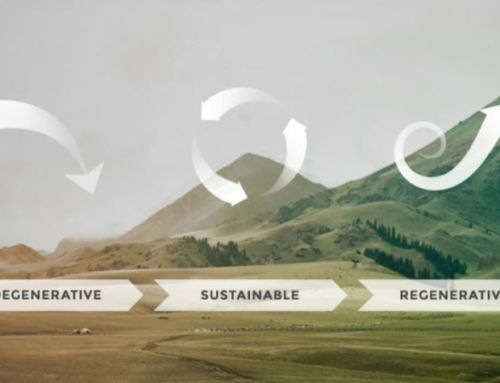Most business leaders consider corporate responsibility important. Many even agree that it’s a must in a successful business. This is of course great and I completely share this belief.
But, people think much too often that it’s a quick fix that can turn your business overnight into being responsible, just by LOOKING responsible. You make your communications department amend the company’s marketing and you start polishing the surface. One company does this to improve their employer image. Another company does this to strengthen their brand among customers. Someone else does this to influence policy makers.
What’s the problem?
1. Responsibility is everybody’s business.
First, why do business leaders need these reasons to put efforts on responsibility? Why shouldn’t a business, as any other person or member of society, act responsibly? Just because it’s the right thing to do.
Why would business be excused from acting responsibly, when we require this from everybody else? There is no rule saying that responsibility cannot be the foundation of business. It’s not in conflict with making profit either.
It has also been questioned whether the agency doctrine of ”shareholders first” is actually quite detrimental to the company, its shareholders, the economic system and society at large. For example, this article by the Harvard Business Review goes deep into this question with a lot of interesting research to back up the arguments (Managing for the long term, HBR May-June 2017). Another interesting read can be found here (”Business School’s Worst Idea: Why the “Maximize Shareholder Value” Theory Is Bogus”, Yves Smith, Evonomics).
We are all part of the same society and we are dependent on each other. No one, not even business, can manage on their own. We don’t live in an isolated bubble where we wouldn’t have to care of others. That’s why responsibility is everybody’s business. So, the core question should be turned the other way around. Every business should ask itself what’s its right not to be responsible.
While many companies put a lot of effort on being responsible, too many companies still leave this undone or don’t do enough.
2. Is corporate responsibility just a glossy surface?
Why is it often so hard to make responsibility real, to make it core of the the strategy and decision making? In many companies, it’s a support function where brand experts polish slogans in isolation or fill in sustainability reports. Then the rest of the organisation actually does not have to care that much.
Is it because it’s easier to concentrate on the short-term gains of sales, instead of looking at the company’s long term impact on people and society? Or do you think that responsibility is not your concern? Or maybe it’s because you are so busy getting through your day that you just don’t have the energy for anything else?
Image and brand say very little of what the company actually is or does. LOOKING good does not automatically mean that you ARE good. Being good means that you care. Caring means that you take responsibility for the consequences of your actions on people and society.
Being truly responsible means that everything you say and do is in line with your corporate responsibility. It means that you consider the primary purpose of your business to be to fulfil a need or solve a problem in society. All other purposes should be subordinate to this task and they become the tools for fulfilling the main purpose. Responsibility must be a criteria in decision making and it cannot be compromised.
Corporate responsibility can be made real
I know that it may not be easy to build responsibility into the foundations of your business. It takes time to turn around attitudes and change company culture. But I am convinced that it is possible in most types of businesses.
Responsible business is both more sustainable and more profitable
There is a lot of research on how both the company, its employees, shareholders and the society benefit from a responsible business. Here is one example. Companies among the “100 Best Companies to Work For in America” generated 2.3% to 3.8% higher stock returns per year than their peers from 1984 through 2011 (Alex Edmans, “The Link Between Job Satisfaction and Firm Value, With Implications for Corporate Social Responsibility”, 2012).
On the other hand, if you don’t make your responsibility credible, it may cost you a lot of money and work. Imagine the pain that, for example, Volkswagen is going through right now when their words were not in line with their actions.
I also think that corporate responsibility can, and should, be done in another way than what we may be used to – to really make it real. I think it should be done by asking why and by understanding why your company exists in the first place. This and many other things will be the topic of my coming blogs, so stay tuned! I will discuss why it’s good business to have a responsible business, what is the pain you avoid by doing it right and many other things.





